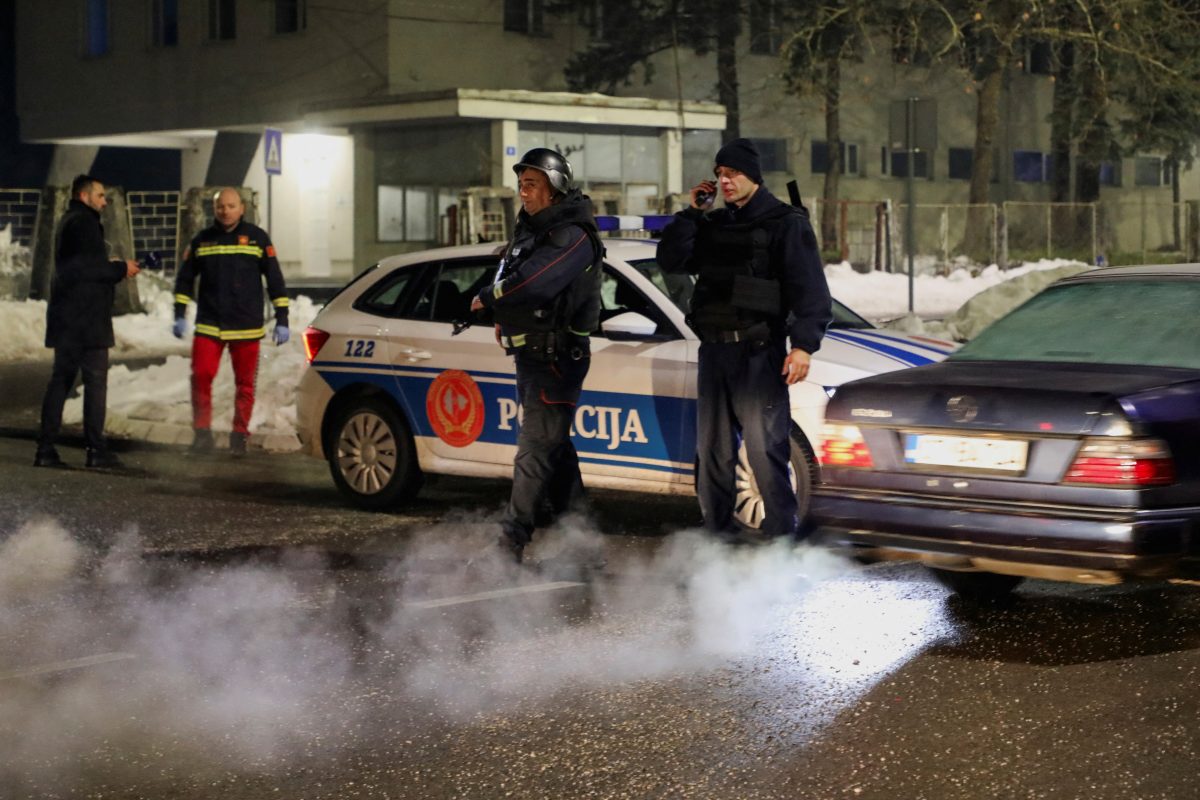CETINJE, Montenegro, (Reuters) – A man shot dead 12 people in a rampage in a small town in Montenegro before dying from self-inflicted wounds early today, authorities said, in one of the Balkan nation’s worst mass killings.
The attacker, named by police as 45-year-old Aleksandar Aco Martinovic, initially killed four people when he opened fire after a brawl at a restaurant in Cetinje on Wednesday afternoon.
He then shot dead eight people, including two children, at three other locations, prosecutor Andrijana Nastic said.
The victims had close links to the gunman, police said. “All the victims were his godfathers, friends … the motive is still unknown,” national police director Lazar Scepanovic said.
It was the second shooting in less than three years in the same town 38 km (24 miles) west of the capital Podgorica. In August, 2022 a gunman killed 10 people, including two children, before he was shot dead.
Martinovic was cornered by officers near his home in the town and tried to kill himself, then died of his wounds on the way to hospital in the early hours of Thursday, Interior Minister Danilo Saranovic said.
“When he saw that he was in a hopeless situation, he attempted suicide. He did not succumb to his injuries on the spot, but during the transport to hospital,” Saranovic told Montenegro’s state broadcaster, RTCG.
‘THE SECOND TRAGEDY’
There were few people on the streets in Cetinje on Thursday and all public venues were closed.
“It was dreadful. Such uncertainty, such fear among all the families in Cetinje. One did not dare to look through the window,” 43-year-old resident Slavica Vusurovic told Reuters.
“When I … saw it on TV, I started crying … This is the second such tragedy in Cetinje,” Slobo Matic, 64, said.
Police said Martinovic had been drinking heavily and had a history of illegal weapons possession. After an altercation with patrons in the restaurant he went home, took a weapon, returned and started shooting, police said.
Four other people suffered life-threatening wounds during Wednesday’s rampage, and one remains in a critical condition, Aleksandar Radovic, the director of the Clinical Centre in Podgorica, said.
Montenegrin Prime Minister Milojko Spajic called the rampage a “terrible tragedy” and declared three days of national mourning. President Jakov Milatovic said he was “horrified” by the attack.
Spajic scheduled a session of country’s National Security Council for Friday to discuss the aftermath of the shooting and measures aimed at detection and seizure of illegal weapons, the government said in a statement.
The proposed measures would include a new weapons law with tighter criteria for owning and carrying firearms, and recruitment of more police officers, it added.
Stricter gun controls would likely face opposition in Montenegro, which has a deeply rooted gun culture.
Despite strict gun laws, the Western Balkans composed of Serbia, Montenegro, Bosnia, Albania, Kosovo and North Macedonia, remain awash with weapons. Most are from the wars in the 1990s, but some date back even to World War One.










